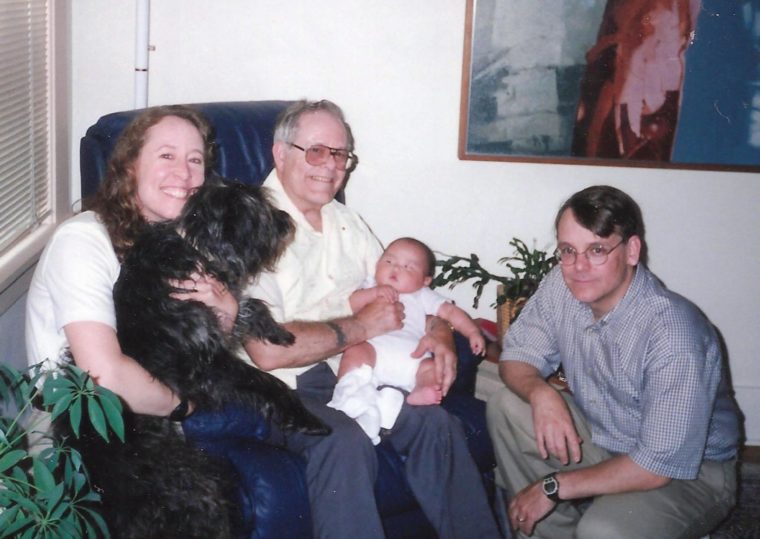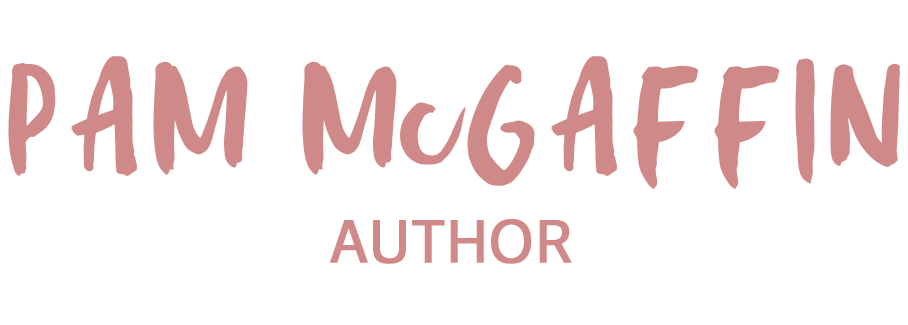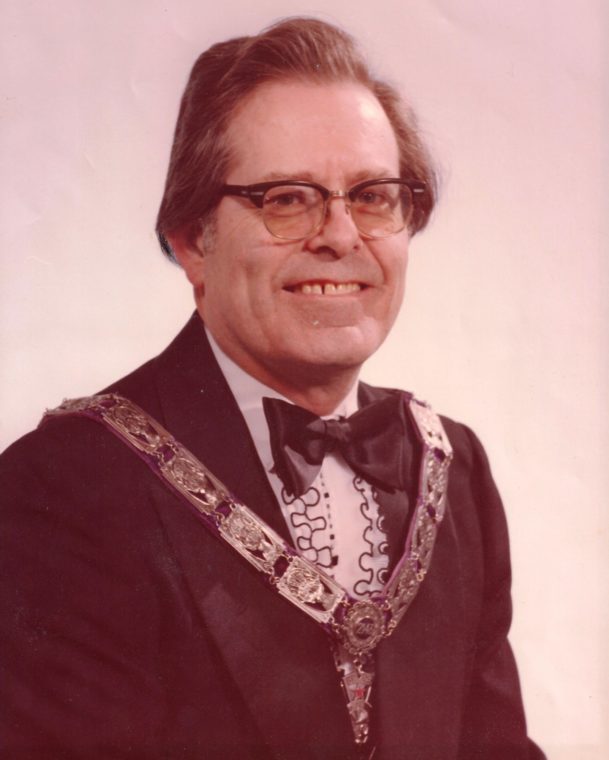What I would have, should have, could have said to my father before he died
Dear . . .
Sorry, but I just can’t seem to call you Dad. You’re father to me, connected by a set of chromosomes that helped determine the color of my eyes, the line of my lips, the pinch at the end of my nose, as well as countless unknowable things. We’re not bonded by any familial memories that would make me miss you.
Still, I’m sorry I didn’t call you back.
You tried at least three times in the last year to contact me. The second time, I went to answer the phone, saw your name on the caller ID and let it ring through to voicemail. “This is Bob McGaffin calling for Pamela.” No one calls me Pamela but you.
The third time, you spoke with my husband, Mark. He listened to your Bible talk and answered your questions about my mother and me. We were fine, he said. Pam will call you back.
I never did. I didn’t want to suffer through more Bible talk.
On Sept. 27, we got a call from “Steve” at the King County Medical Examiner’s Office. He broke the news of your death so gently I felt compelled to inform him you and I weren’t close. Estranged is the word I continue to use, though it’s not quite accurate. There can’t be distancing or alienation where there was no love to begin with.
You looked like Glenn Ford
Growing up, I kept asking Mom why she married you only to divorce you in short order, before I could know you as a father, before I got a sibling. I really wanted a brother or sister. And a dog, but that’s another story.
You met dancing. You were a good dancer and looked like the actor Glenn Ford. But the main reason Mom married you, she says, is because all her friends were getting married – not a mature reason, she concedes.
She didn’t want to poison any relationship I might develop with you, so she waited until I was older to tell me why your marriage failed. Once that gate opened, the details spilled out: a table knife thrown, a picture destroyed, belittling, jealousy, control.
Mom was pregnant with me when you pushed her down because you resented her going to her own baby shower. When your abuse extended to me — yanking a bottle out of my mouth — Mom knew she had to leave.
To your credit, you accepted the divorce, faithfully paid child support and never forgot my birthday. You visited twice a year, once on my birthday and once over the holidays. We’d sit around the living room – you, your third wife, Marie, my mom, my grandmother and me — and I’d smile, answer questions, maybe play a piece on the piano, all the while counting the minutes until you left so I could breathe again.
I went with you and Marie on two outings that I remember. When I was younger, you tried to impress me by taking me in your big shiny car to a movie followed by a steak dinner at the Black Angus. You made sure I knew just how much money you were spending on me.
The second time, I was in my teens. We went to the Seattle Center and played putt-putt golf. Did you rib me unmercifully about my poor putting skills? I can’t remember. I just recall feeling bruised afterwards, like you’d stomped all over my fragile adolescent ego.
But you were the one with the fragile ego. Having come from an abusive household yourself (Mom told me), maybe this treatment of women was something you grew up with, something you learned. Making women feel small made you feel big. (Much later, you admitted to being a bad husband. Religion, for you, offered redemption as well as salvation.)
“I guess that’s my daughter”
The years passed. I graduated from the University of Washington with a degree in Communications/Journalism and eventually became a reporter for the Herald in Everett. A co-worker of yours at Boeing had seen my byline and asked you if I was related.
“I guess that’s my daughter,” you’d said. I only know about this exchange because you related it to my mother in a telephone call.
You were proud, I think, even though it troubled you that I never found God. You tried again and again to enlighten me. You’d call me out of the blue, your rambling, boastful talk peppered with Bible verses. I never appreciated the preaching, but I didn’t have the nerve to tell you to stop. It was your way of showing that you cared.

You also came to my wedding and, some years later, met our first adopted son, Casey, recently arrived from Korea. I know your fourth wife, Lucille, urged you to come see me and meet your grandchild. She tried to bring us closer together. For a while, it worked. But she died, and we soon drifted back to our usual distance.
I’m as much to blame as you, probably more so. We had nothing in common beyond blood. Our conversations were strained. And, much to my husband’s chagrin, I didn’t see the point of forging a fake bond for the sake of inheriting a small portion of your estate. If you left every last penny to the church, so be it.
A neighbor found you
He’d come to check on you and found you in your bed. A likely heart attack, the Medical Examiner’s Office said. You were 89.
Mark and I went downtown to the ME’s Office collect the few items they’d removed from your house: your keys, about $300 in cash and the watch you were wearing. They described your home as “disorganized and unkempt.”
An understatement. Dishes and containers with food, half consumed, left out to rot and attract vermin (in evidence). Crusty spills on the kitchen floor. A mattress turned dark sinkhole. Everything covered with dust and grime. Even the cobwebs were black.
How could you live like this? Was there no one in your life? Or did you turn them away? A neighbor said you refused medical treatment. What about comfort? Where were the Christian Faith Center and its founder Casey Treat when you needed them? I see they sent you Christmas cards.
Or were you too proud to ask for help? Would you have asked me for help had I bothered to return your calls?
I picked through the piles of papers left on your dining room table next to an unfinished bowl of stew, a box of cereal and some green-tinged milk in a bottle. You’d set aside documents related to insurance, investments and funeral-home arrangements. I also found a faux-leather binder that looked like it contained a will. It was all there, waiting for me.
Did you know you were about to die?
Mark and I took what looked important home with us. Over the next couple of weeks, we also took the Toyota sports-utility vehicle you’d just purchased, a large blue glass vase, a framed photo of you when you were named leader of the Burien Elks Club, a shoebox full of hand-carved slides for Boy Scout neckerchiefs, as well as a banjo and a mandolin.
The instruments were a surprise
I never knew you played. I realize there’s a whole lot I don’t know. What I do know wouldn’t even fill out a decent obituary:
- born in Topeka, Kansas
- parents operated a dance hall
- had a twin sister
- Boy Scouts leader
- Member of the Elks Club
- Voted Republican
- Owned at least ten Bibles
- Attended prayer circle at the Highline United Methodist Church in Burien
You donated $600 to this church between June and August.
You left everything else to me.
Mom was the one who suggested I write you this posthumous letter. “Sometimes it helps,” she said, when you have unfinished business and mixed feelings.
So, once more, I’m sorry I didn’t call you back. If we’d talked, I would have told you that my first novel — about a girl struggling with the disappearance of her father – will be published next fall.
You won’t be around for its release, but your estate will help pay for the costs of this book, and, hopefully more to come.
So, thank you . . . Dad. I hope I make you proud.
Your daughter,
Pamela



Omg Pam – this is so brutally honest and touching – i hope your mum’s advice to write this posthumous letter helped you. I was estranged from my dad when he passed and your letter helped me. Love, Leila
It did help, Leila. I’m so glad my post could help you. That’s why I write.
Wow, Pam, thanks for sharing such an intimate story. I hope it helps heal you. I think a lot of people can relate to what you’re feeling. I have a brother I rarely talk to, and my last visit with him revealed that to be the right thing, but it makes me sad and I wonder how I’ll feel when he passes.
You are a beautiful writer — looking forward to your book!
Thank you, Audrey. Sorry about you and your brother, but you’re right — sometimes estrangement is the only way.
What a poignant posting — and movingly written. My sympathies on losing both fathers (this one and Wally Funk) in the same year. I do hope the letter writing gives you some closure.
It does. Thanks, Laura.
Pam:
I am so proud of you for speaking the truth, it may hurt and it may be hurtful for others to hear but it’s truth. Your words will touch others because there are many daughters and sons just like you that were treated in the same way, not me personally but my daughter. He never wanted to know her until he was about to have another family, never reached out, never called or wrote or acknowledged birthdays or Christmas. He never tried to get to know who special this young lady was or turned out to be. We were at a memorial for my daughters Grandfather and he saw her for the first time in over 10 years, his only comment was that she was beautiful. She really didn’t know who he was or how to respond, so she smiled and walked away. It was awesome, and today ,y beautiful daughter has a wonderful step father she calls Dad, who loves respects and worships the ground she’s walks on because of her beauty inside and out. So again good for you, I applaud you for speaking the truth about the donor of you and xceptionsl Daughter, Mother and wife… heck Mark wouldn’t just marry anyone ! Love you for YOU!!!
Thanks, Cathi, for your kind words and for sharing you and your daughter’s story. This post seems to have struck a nerve for many people.
Thank you Pam for this beautiful writing. I hope it was not too difficult for you to write about this; for sure, IT IS very healing; hopefully for you and, for sure, for many others who have been / are going through similar situations. It take a lot of inner strength to bring out “life” in its truthful facts while staying with the lightness of being…. Your writing is very powerful. THANK YOU!
Thanks, Adina. Writing is how I work through feelings and resolve problems. So, yes, this was cathartic. Thrilled that my words can also help others.